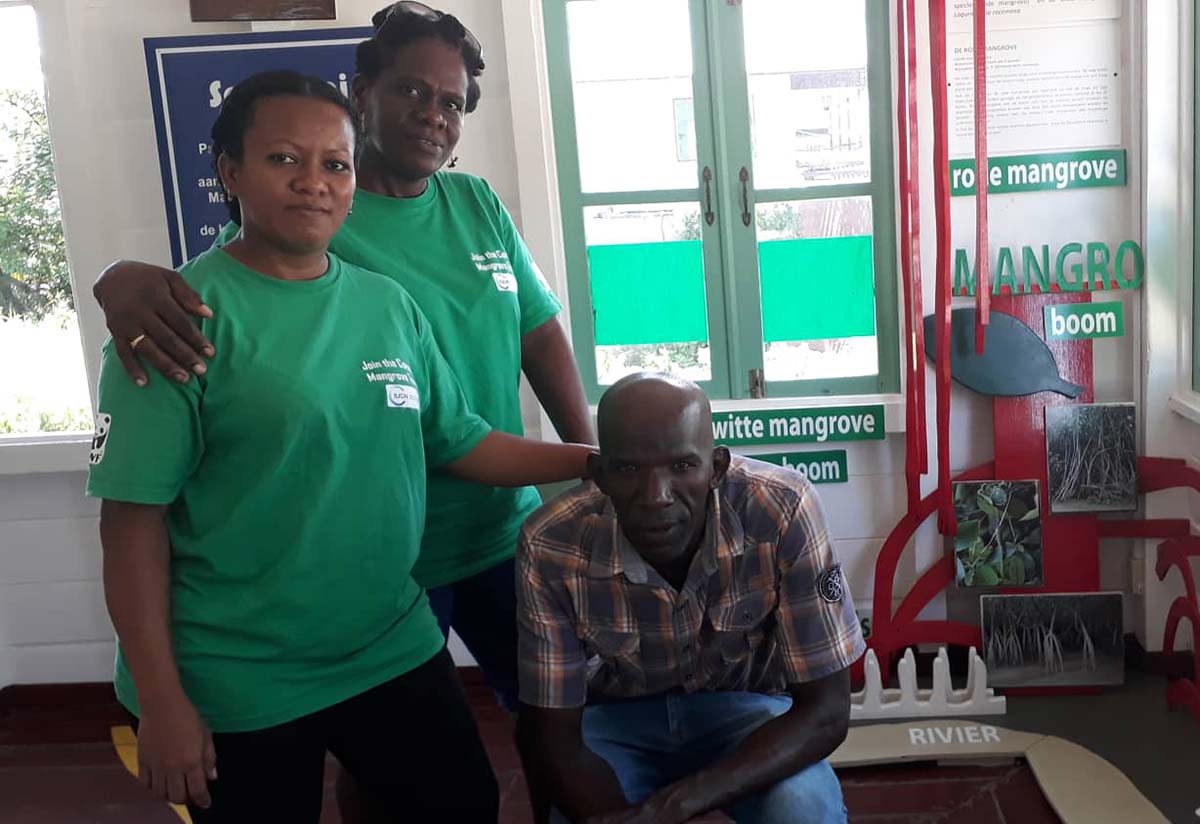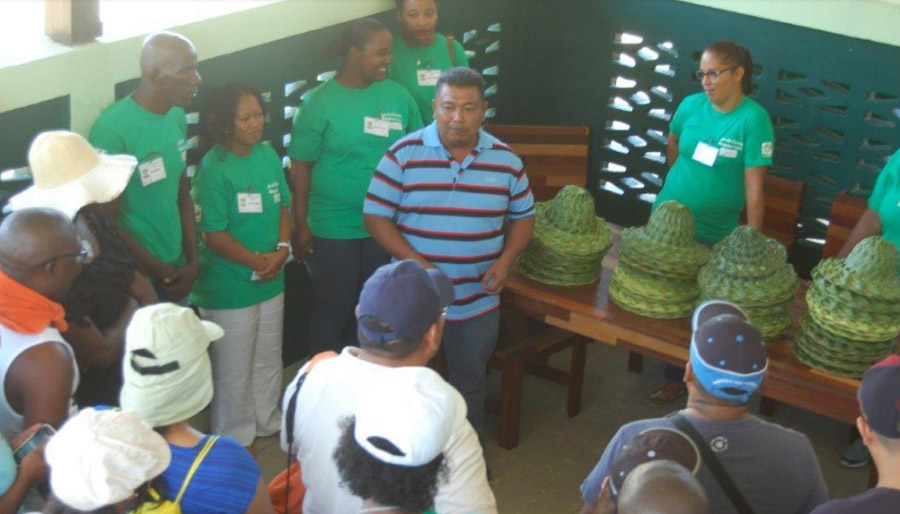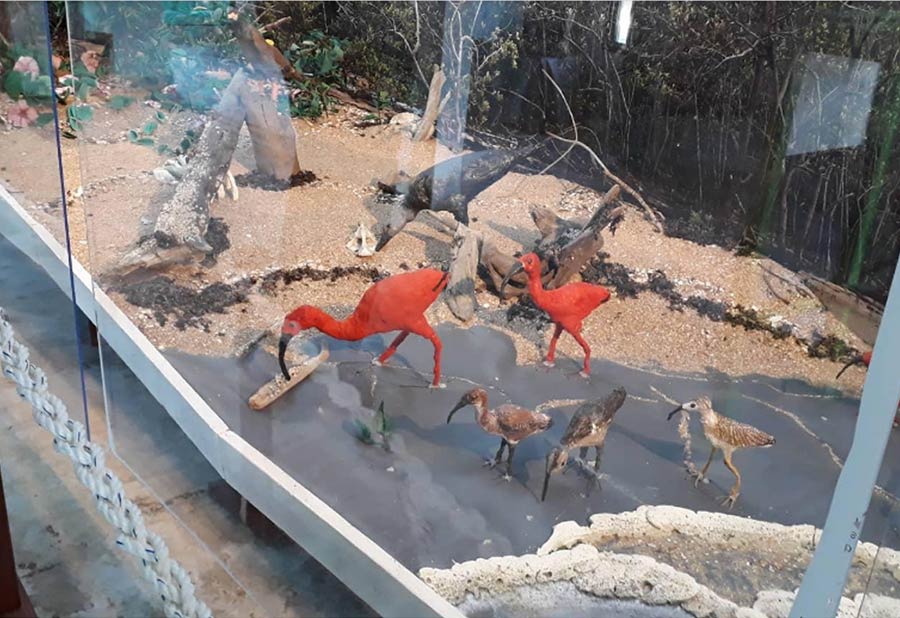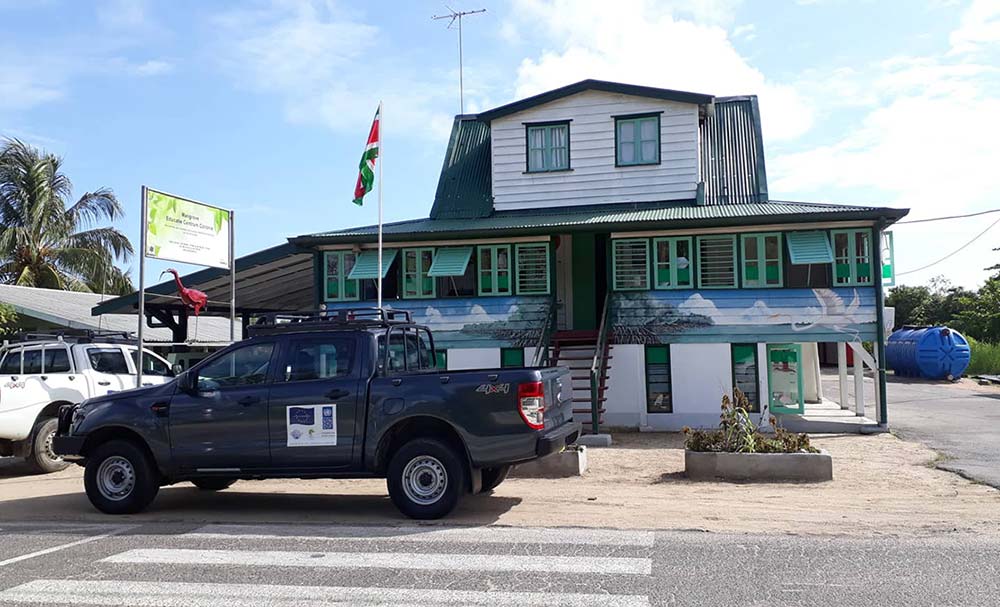The Mangrove Education Center in the district Coronie in Suriname is increasingly becoming a popular stop for tourists visiting the district. There visitors enjoy an integrated package offered by the center which comprises a tour and briefing at the mangrove museum to sightseeing across the district. However, the major goal of the Mangrove Education Center Coronie (MECC) is the education of people about mangrove ecosystems through educational tourism.
“we are excited that this center is known more by people from outside of the Coronie than people from Coronie” one of the mangrove educators, Bryan Creton says. “We are receiving a group of visitors this afternoon and one more has been booked for this weekend.”
The MECC is a joint initiative of UNDP and Ministry of Physical Planning, Land and Forestry Management (RGD); implemented by SORTS (foundation of development through radio & Tv Suriname) and funded by EU under GCCA+ project. Before the initiation of the project, MECC was not able to operate due to lack of equipment, resources and community ownership. According to the former project coordinator Loes Trustfull, the project wouldn’t have been sustained had she not intensively consulted the local community during the inception phase.
Trustfull remembers, “I had to make several rounds of community consultations in the beginning, including consultation with women which I had to do separately. During the development of the plan for sustainable use of the MECC, many women who were unemployed, expressed their interest to get involved in it.”
Now MECC is creating an income generating opportunity, if not regularly but occasionally. There are 7 mangrove educators who identifies themselves as mangrove tour guides at the center. They have agreed to work on a rotation basis so that everyone can get the opportunity to serve as a tour guide.
Mangrove educator Shepper Francoise says, “Before joining MECC, I was a jobless person and had to fully depend on my husband’s income. Although I do not earn much from this center, I have learnt the skills and knowledge on mangrove and tour guide and I am hopeful, I could earn more in the future.”
Trustfull calls the project a women led project, as it is composed mainly of female mangrove educators and staff.
Both Francoise and Creton agreed they receive more women visitors than men and they also pointed out that they have noticed that women visitors are more curious to learn about the mangrove ecosystem. Francoise adds, “Our center is child-friendly, it could be the reason that women often come with their children to visit here"
Although the center is yet to formally come into operation, it is receiving visitors on a trial basis. It has collaborated with two tour agencies from Paramaribo. Depending upon visitors’ choice, 2 to 8 hours of activity are organized to cover the field visits. As community tourism initiative, proceeds from ticket sales for the tours, are shared with the communities participating in the tours. In like manner, the mangrove educators are paid from the proceeds of ticket sales.
Creton says, “Recently we have come to an agreement on the cost of the tour and minimum charge for mangrove tour guides. Now the cost looks much better”
Ultimately, the center intends to play an important role in raising awareness on mangrove through educational tourism along with empowering women particularly to be educational tour guides which is an unusual and uncommon profession for women in Coronie.
Francoise shares her experience, “now I am not idle anymore and many people from my area know me. I feel proud to work here and enjoy letting people know about the importance of Mangrove.”
The MECC has received financial and technical support from the European Union funded GCCA+ project being implemented by UNDP Suriname.

 Locations
Locations


